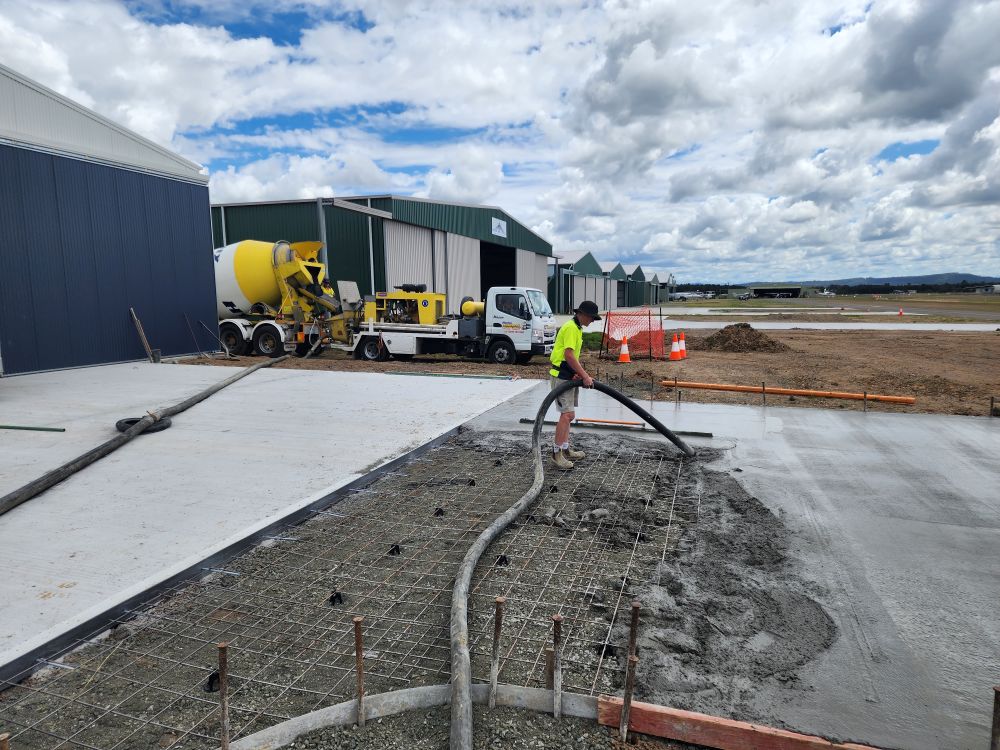Comprehensive Guide to Precisely Calculate Concrete Volume for Your Construction Projects
To obtain a reliable estimate of the volume of concrete required for your construction endeavour, it is essential to apply the straightforward yet efficient formula: Length × Width × Depth. It is highly advisable to enhance your calculations by an additional 10% to accommodate potential waste, spillage, and uneven ground conditions that may occur during the pouring process. Should you have any uncertainties regarding your measurements or calculations, do not hesitate to contact Hunter Concrete Pumps, who can offer expert assistance to ensure your estimates are not only accurate but also customised to meet the specific needs of your project.

Effective Use of the Standard Volume Calculation Formula for Concrete Projects
When working with concrete, measurements are typically expressed in cubic metres (m³). To accurately determine the quantity required for a concrete slab or foundation footing, simply utilise the formula outlined below:
Length (m) × Width (m) × Depth (m) = Volume (m³)
Before engaging in any calculations, ensure that all dimensions have been converted into metres. For instance, if you have a slab measuring 8 metres in length, 5 metres in width, and a thickness of 100mm (which is equivalent to 0.1m), the computation would appear as follows:
8 × 5 × 0.1 = 4.0m³
It is crucial to refrain from ordering the exact calculated volume. Always round up your order by 10% to accommodate for potential wastage, irregularities in the formwork, or any spillage that might occur during the concrete pumping process. Therefore, in this particular example, you would want to order 4.4m³ of concrete to ensure you possess sufficient material for your project.
In-Depth Volume Guide for Common Slab Sizes and Their Concrete Requirements
| Slab Size (m) | Thickness (mm) | Volume (m³) | Add 10% Overrun | Final Order (m³) |
| 4 × 4 | 100 | 1.6 | 0.16 | 1.8 |
| 6 × 6 | 100 | 3.6 | 0.36 | 4.0 |
| 8 × 5 | 100 | 4.0 | 0.40 | 4.4 |
| 10 × 6 | 150 | 9.0 | 0.90 | 9.9 |
| 12 × 10 | 100 | 12.0 | 1.20 | 13.2 |
Practical Techniques for Accurately Calculating Volume Across Various Scenarios
- Strip Footings: When determining the volume for strip footings, adhere to the standard practice of multiplying length, width, and depth. Nonetheless, remember that footings can differ in size. In such instances, segmenting the task into smaller sections can improve accuracy and ensure that all variations are taken into consideration.
- Circular Slabs or Pads:
For the calculation of the volume of circular slabs, apply the formula: π × radius² × depth. For example, if you possess a pad with a diameter of 3m and a depth of 100mm, the calculation would be:
π × (1.5)² × 0.1 ≈ 0.71m³. Always remember to include an additional 10% for overrun to guarantee an adequate supply of material. - Heavily Reinforced Slabs:
In cases where slabs incorporate substantial reinforcement with dense rebar or mesh, the required volume may slightly decrease. Our team is available to assist you in making the necessary adjustments to your calculations to ensure compliance with your project’s specifications.
Are You Seeking Professional Assistance with Your Concrete Volume Calculations? Contact Us Today!
If you have any uncertainties regarding the precise quantity of concrete required for your project, please share your slab dimensions, footings plan, or PDF drawings with us. Reach out for a detailed and accurate quote tailored specifically to your needs. We will handle the calculations, ensure proper rounding up, and even coordinate the concrete mix should you choose to engage our pumping team. Hunter Concrete Pump Hire provides services across the Newcastle area, The Hunter Valley, and a substantial part of the Central Coast. We are dedicated to helping you achieve success in your construction projects!
Your Reliable Source for Concrete Pump Hire in Newcastle
The Article: Estimating Concrete Volumes Accurately for Pumping first appeared on https://writebuff.com
The Article Accurate Estimating of Concrete Volumes for Pumping Was Found On https://limitsofstrategy.com

